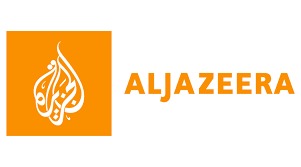 Al Jazeera Article Rating
Al Jazeera Article RatingUSCIRF chief on why India was put on religious freedom blacklist
- Bias Rating
-42% Medium Liberal
- Reliability
N/AN/A
- Policy Leaning
38% Somewhat Conservative
- Politician Portrayal
-33% Negative
Continue For Free
Create your free account to see the in-depth bias analytics and more.
Continue
Continue
By creating an account, you agree to our Terms and Privacy Policy, and subscribe to email updates. Already a member: Log inBias Score Analysis
The A.I. bias rating includes policy and politician portrayal leanings based on the author’s tone found in the article using machine learning. Bias scores are on a scale of -100% to 100% with higher negative scores being more liberal and higher positive scores being more conservative, and 0% being neutral.
Sentiments
N/A
- Liberal
- Conservative
| Sentence | Sentiment | Bias |
|---|---|---|
Unlock this feature by upgrading to the Pro plan. | ||
Reliability Score Analysis
Policy Leaning Analysis
Politician Portrayal Analysis
Bias Meter
Extremely
Liberal
Very
Liberal
Moderately
Liberal
Somewhat Liberal
Center
Somewhat Conservative
Moderately
Conservative
Very
Conservative
Extremely
Conservative
-100%
Liberal
100%
Conservative

Contributing sentiments towards policy:
61% : Maenza: USCIRF wants the US-India relationship to be as productive and meaningful as possible - and we believe that religious freedom should be an important part of that relationship.57% : Maenza: USCIRF has repeatedly recommended that the US government make religious freedom an important part of US-India bilateral relationship and advance human rights of all religious communities in India and promote religious freedom and dignity and interfaith dialogue through bilateral and multilateral forums and agreements, such as the ministerial of the Quadrilateral.
56% : In April this year, the United States Commission on International Religious Freedom (USCIRF), an independent, bipartisan federal government commission, recommended India be placed on a religious freedom blacklist for the second year in a row.
56% : Maenza: Our mandate requires us to monitor religious freedom conditions and make policy recommendations to the US government.
55% : : What is your assessment of the current state of religious freedom in India?
54% : Al Jazeera: Will USCIRF recommend the inclusion of human rights and religious freedom as part of any future US-India dialogue?
52% : In its annual report for 2021 (PDF), the commission, which makes religious freedom and foreign policy recommendations to the US president, the US Congress, and the Department of State, called for India, the world's largest democracy, to be designated as a "country of particular concern" (CPC) for "egregious religious freedom violations".
52% : India shares the CPC list with 14 other countries, which include Saudi Arabia, China, Iran, Myanmar, Eritrea, Nigeria, North Korea, Pakistan, Tajikistan, Syria, Russia, Vietnam and Turkmenistan.
47% : Part of the discrepancy is because USCIRF can focus on religious freedom conditions alone without needing to balance other bilateral issues.
46% : Religious freedom conditions in India are greatly concerning.
45% : Maenza: USCIRF in its 2021 annual report recommends that the White House and State Department continue to raise religious freedom concerns in the US-India bilateral relationship and the US Congress should highlight concerns through hearings, briefings, letters and Congressional delegations.
42% : The Indian government, led by the Bharatiya Janata Party (BJP), promotes Hindu nationalist policies resulting in systematic, ongoing, and egregious violations of religious freedom which negatively impact non-Hindu religious communities, including Muslims, Christians, Sikhs, Dalits (formerly known as "untouchables") and Adivasis (Indigenous).
*Our bias meter rating uses data science including sentiment analysis, machine learning and our proprietary algorithm for determining biases in news articles. Bias scores are on a scale of -100% to 100% with higher negative scores being more liberal and higher positive scores being more conservative, and 0% being neutral. The rating is an independent analysis and is not affiliated nor sponsored by the news source or any other organization.





















